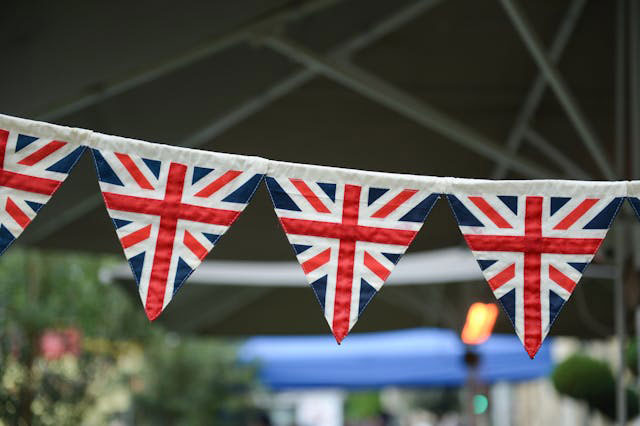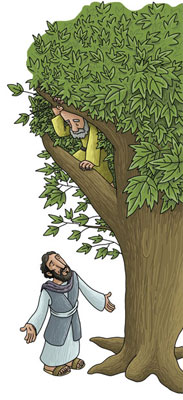Dr Anne Richards, National Public Policy Adviser for the Church of England, reflects on the increased use of crosses in staged campaigns and the role of Christian communities in resisting ‘Christianism’ but understanding the crosses of burden people carry in their everyday lives.
 I, like many other Christians, wear a small cross around my neck. Someone I love gave it to me and it is important to me as a sign of my faith. On occasion I have been asked about it, and I have the chance to say something about what my cross means, about the overwhelming love and sacrifice of Jesus Christ, and what Jesus’ death on the cross means to me and to all who follow him.
I, like many other Christians, wear a small cross around my neck. Someone I love gave it to me and it is important to me as a sign of my faith. On occasion I have been asked about it, and I have the chance to say something about what my cross means, about the overwhelming love and sacrifice of Jesus Christ, and what Jesus’ death on the cross means to me and to all who follow him.
But my cross is not a prop. It’s not something I put on or get out to make a point or to declare my allegiance ‘against’ others who are not Christian. It is not a weapon or a thing to shore up my rightness over the faith or feelings of others. It is not a statement of ‘Jesus is on my side and against your side’.
In recent times, we have seen the cross used as a prop in various staged campaigns. Various groups - political, ideological, and just ordinary people catching the mood - have gathered together in London and waved flags with the cross of St George, and paraded wooden crosses through the streets, even shouting ‘Christ is King!’ The problem is that the marches and rallies with crosses are not walks of witness, like we might perform on Palm Sunday, seeking to tell the story of Jesus, but look like crusading performances which can intimidate, alarm and exclude others.
In response to this, a whole group of church leaders from different denominations wrote a letter about the Unite the Kingdom rally, denouncing the use of Christian symbols to create fear and feelings of threat: ‘As Christians from different theological and political backgrounds we stand together against the misuse of Christianity. The cross is the ultimate sign of sacrifice for the other. Jesus calls us to love both our neighbours and our enemies and to welcome the stranger. Any co-opting or corrupting of the Christian faith to exclude others is unacceptable’. Similarly, Methodist minister Dr Jonathan Hustler wrote that, ‘Sadly, also, in making their case they requisition Christian symbols as if the correct response to people of other religions is to weaponise the things of our faith against them’. And a Guardian editorial wrote that carrying crosses and proclaiming a kind of Christian Nationalism was ‘Christianism’, ‘an aggressive and exclusionary assertion of “belonging” that need not have any connection with actual religious belief’.

Photo by Rosa Stone
So we can point to the use of the cross in such a way as to make claims about territory, history, and strangers as actually blanking out Jesus altogether, whose words and deeds would counter rhetoric and posturing ,and who would surely stand among the frightened strangers, not the cross bearers. Jesus would be the inconvenient truth.
But, if we want to say these things about the people on the march, then it’s also important to do more work to understand what they are about and why they are bringing the crosses. In my work a lot of people ask me to talk about the ‘far right’ and I find this difficult. There is much argument about what affiliation to the ‘far right’ actually means and such a label tends to bundle a lot of angry people together. Other terms which get used are ‘nationalist’, ‘patriot’, ‘hard right’, ‘Nazi’, ‘supremacist’ and so on. But at the rally we saw all kinds of people, including those who were inflamed about political problems facing the government like immigration and asylum, provision of services, economic stress, and crime; and other people concerned about what they see as erosion of British or English culture, morals, codes of behaviour and Christian religion, which may be no more to them than a colouring, a flavour, to British life. The focus of that perceived erosion is often Islam.
The Bishop of Leicester noted that there are people who hold similar views, who are in our churches and congregations. He said that many people feel the same concerns, ‘not out of hatred but out of sincere concern for social cohesion, pressure on public services and the pace of cultural change in their communities’. So while we might condemn the blanking of Jesus and weaponising of his Cross, we cannot ignore ordinary people whose voices are unheard and whose needs are real. Why are they calling for defence of faith, land and family?
 Local churches and Christian communities of fellowship have an important and necessary role in both resisting ‘Christianism’ but also understanding the crosses of burden people are carrying in their everyday lives. We can all show our neighbours in our communities that the cross for us is not a fence line, but a daily reminder to us of our need to show Jesus’s invitation, welcome, hospitality, inclusion and care for others, especially perhaps those others who other people vilify or despise, as Jesus did so memorably with Zacchaeus (my favourite gospel story). The cross is the source of Jesus’s command to us to seek peace, drive out fear and see God in others.
Local churches and Christian communities of fellowship have an important and necessary role in both resisting ‘Christianism’ but also understanding the crosses of burden people are carrying in their everyday lives. We can all show our neighbours in our communities that the cross for us is not a fence line, but a daily reminder to us of our need to show Jesus’s invitation, welcome, hospitality, inclusion and care for others, especially perhaps those others who other people vilify or despise, as Jesus did so memorably with Zacchaeus (my favourite gospel story). The cross is the source of Jesus’s command to us to seek peace, drive out fear and see God in others.
Another task is to acknowledge that there is disquiet and concern among Christians about things going on in society and find ways to talk about those that don’t retreat into hostility and fear or point fingers at particular groups or people. Being worried about money, jobs, NHS waiting lists, and fast demographic change in towns where the familiar and safe landmarks feel like they are being erased is real, and the churches at the heart of such communities need to hear and pray for those concerns.
Finally, churches are beacons of spiritual warmth, light and faith in the heart of communities which should offer kindness and solidarity to people who are scared and feel threatened by the flags, crosses and slogans which feel aimed at them. Everyone these days feels the blasts of vitriol from social media and our children and young people may be particularly affected by it. What we can do is be the bright, better face of the real world, the world Jesus came to save by his Cross and Resurrection.
Other photo credits
Woman wearing cross by Tima Miroshnichenko
Prayer for unity
Faithful God, we pray for the discord that can exist in our society.
Where discontent and fear turn people to divisiveness and blame.
Help us to find ways to listen to one another, even where there is disagreement,
that every person would feel their concerns can be heard.
Impress upon us the importance of loving our neighbour and the stranger,
even when they are entirely different from ourselves.
Lord, bring your gift of unity.
Amen
(Extract from Roots intercessions for Proper 22 Sunday 5 October 2025.)
Further research
Materials of State: The Union Jack